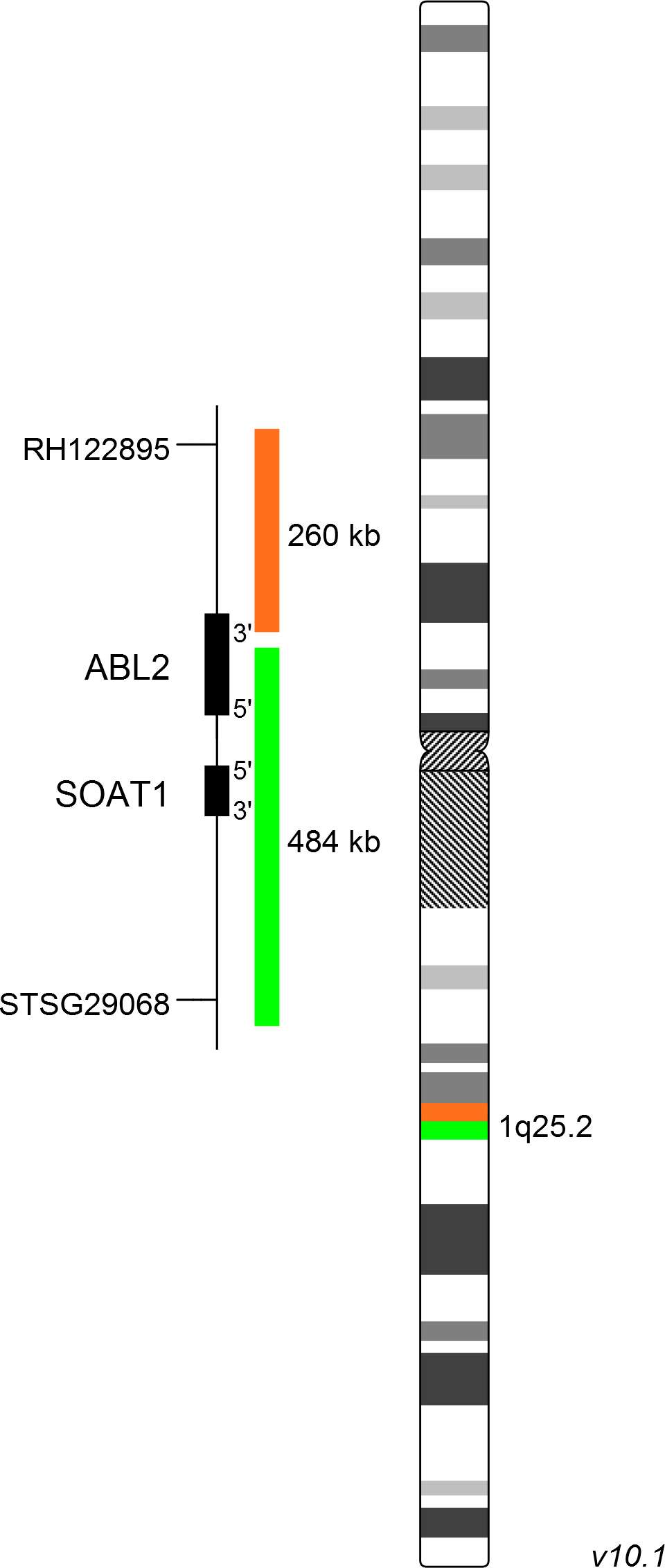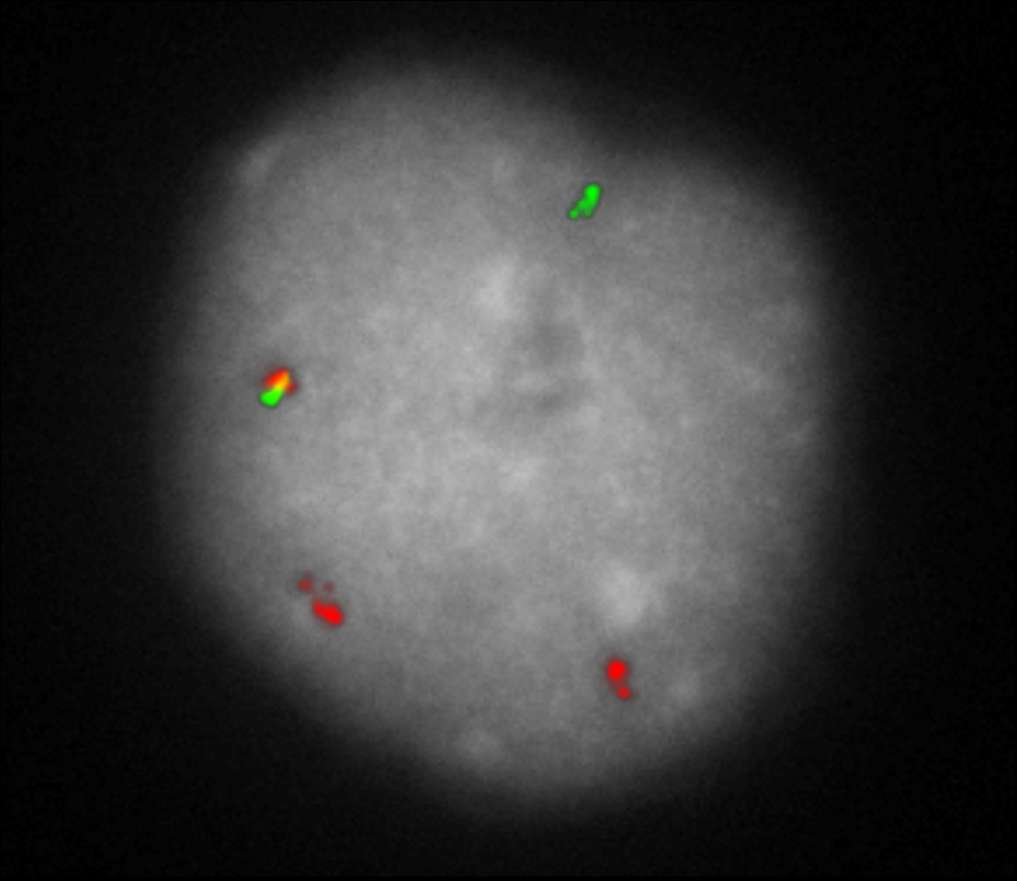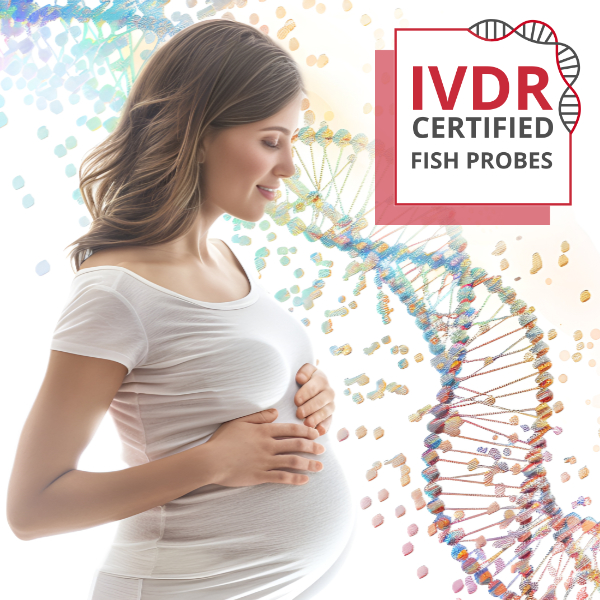
XL ABL2 BA
Break Apart Probe
- Order Number
- D-5138-100-OG
- Package Size
- 100 µl (10 Tests)
- Chromosome
- 011
- Regulatory Status
- IVDD
IVDR Certification
MetaSystems Probes has already certified a wide range of FISH probes, according to IVDR.
This product remains IVDD-certified until further notice.
Discover all IVDR-certified products
XL ABL2 BA consists of an orange-labeled probe hybridizing proximal to the breakpoint in the ABL2 gene region at 1q25.2 and a green-labeled probe hybridizing distal to the break point in the ABL2 gene region at 1q25.2.
Probe maps for selected products have been updated. These updates ensure a consistent presentation of all gaps larger than 10 kb including adjustments to markers, genes, and related elements. This update does not affect the device characteristics or product composition. Please refer to the list to find out which products now include updated probe maps.
Probe map details are based on UCSC Genome Browser GRCh37/hg19, with map components not to scale.
Acute lymphoblastic leukemia (ALL) is a rare disease with approximately 1:100.000 new diagnoses per year. Around 3-5% of pediatric ALL and 25% of adult ALL are characterized by t(9;22), resulting in the BCR-ABL1 fusion gene, a constitutively active tyrosine kinase. Furthermore, BCR-ABL1 is genetically characterizing chronic myelogenous leukemia. Tyrosine kinase inhibitor treatment of BCR-ABL1-positive cases, which initially have a poor prognosis, dramatically improves the outcome. A novel high risk subtype called BCR-ABL1-like ALL or Philadelphia-like ALL was discovered based on similar gene expression profiles to BCR-ABL1-positive ALL and is characterized by aberrations resulting in activation of tyrosine kinase signaling pathways. Prominent genes in the JAK/STAT activating group are CRLF2, EPOR and JAK2, while members of the ABL-class fusions are ABL1, ABL2, CSF1R and PDGFRB. ´The 2016 revision to the World Health Organization classification of myeloid neoplasms and acute leukemia´ specifies B-lymphoblastic leukemia/lymphoma, BCR-ABL1–like as a provisional entity.
The ABL2 gene has been initially identified as a novel fusion partner of ETV6. ABL2 belongs to the Abelson family of non-receptor tyrosine kinases and is highly similar to ABL1. t(1;12)(q25;p13) results in a chimeric ETV6-ABL2 protein with a constitutive active tyrosine kinase.
Clinical Applications
- Acute Lymphoblastic Leukemia (ALL)

XL ABL2 BA hybridized to HT-93 cells carrying t(1;12) and t(15;17), one interphase is shown. The separation of one colocalization/fusion signal indicates a split of the orange and green labled probes flanking the ABL2 breakpoint region. The remaining copy of ABL2 contributes one colocalization/fusion signal. The additional orange signal was interpreted to be localized on a derivative chromosome 4 representing a duplication of parts of the q-arm of the derivative chromosome 1.

Normal Cell:
Two green-orange colocalization/fusion signals (2GO).

Aberrant Cell (typical results):
One green-orange colocalization/fusion signal (1GO), one separate green (1G) and orange (1O) signal each resulting from a chromosome break in the relevant locus.
- Iijima et al (2000) Blood 95:2126-2131
- Arber et al (2016) Blood 127:2391-2405
- Tasian et al (2017) Blood 130:2064-2072
Certificate of Analysis (CoA)
or go to CoA Database



